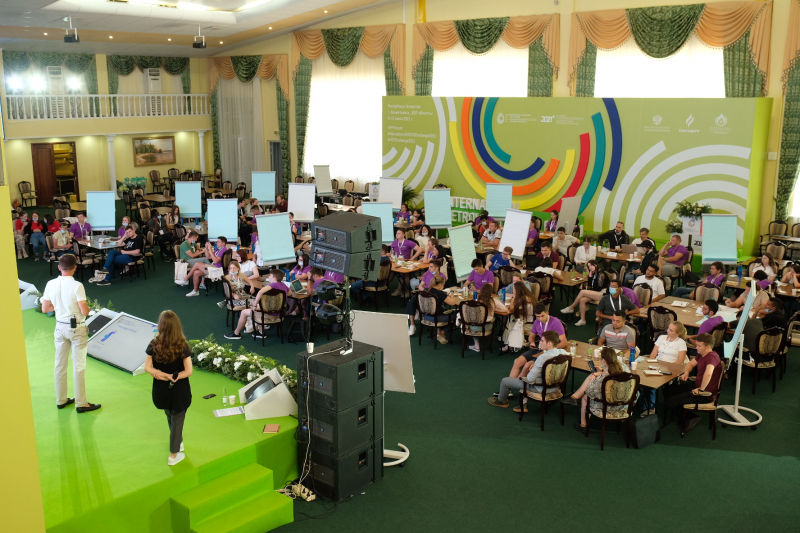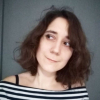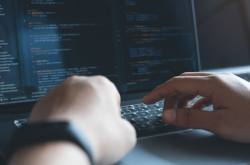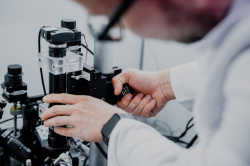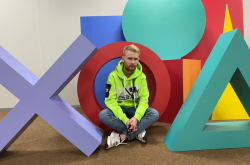How did you make it to the finals? And what was the forum’s program like?
Regina: In the selection round, we had to present ourselves in a video, fill in an application form, provide our CV, and specify our level of English. We also had to take two tests with questions on leadership skills and project management.
Daria: The program featured quite a lot of things. For instance, on the second day the Oil Summit had its plenary session on sustainable development within the global agenda of the oil and gas industry in 2021. Among the participants of the Summit were Rustam Minnikhanov, the President of the Republic of Tatarstan and Chairman of the Board of Directors of Tatneft, Nail Maganov, CEO of Tatneft, Pavel Sorokin, Deputy Minister of Energy, Alexey Sazanov, Deputy Minister of Finance, and Oleg Sinyashin, research supervisor at Kazan Scientific Center of the Russian Academy of Sciences.
For the first three days after the opening ceremony we attended lectures and workshops, and then we divided into teams to spend two days developing our cases. After that, each team had to present their solution to the expert committee.
However, it was not all formal and project work – we also had quite a rich cultural program. For instance, we went to the KARAKUZ Almet Fest, got to know the town of Almetyevsk, met director Timur Bekmambetov, watched his latest film V2. Escape from Hell, and had fun at the StandUp Show.
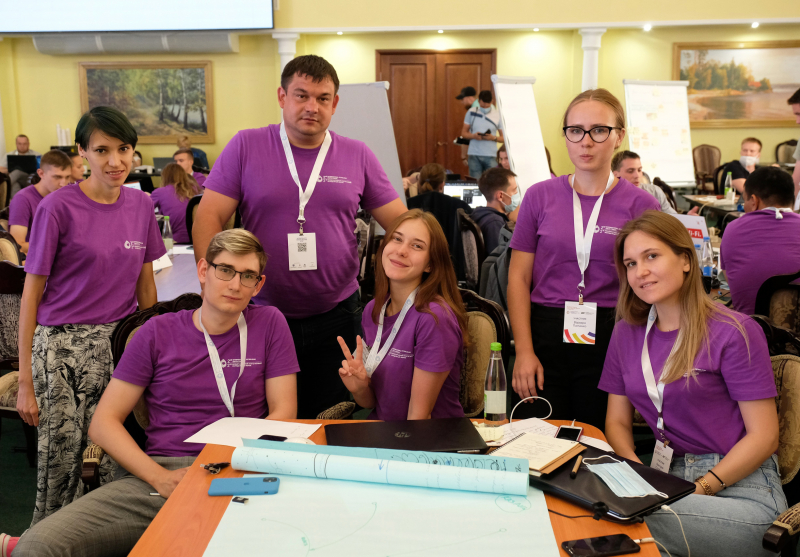
Daria Yakovleva's team at the finals of the Hackathon Oil Tech Challenge 2021. Photo courtesy of Daria Yakovleva
Regina, tell us about your project.
Regina: My case was on preserving biodiversity on Tatneft’s area of activity and the south-east Tatarstan. We focused on invasive plant species – those that were brought to areas that aren’t their natural habitats. There, they become aggressive and cause harm to the animals and plants that do naturally inhabit the areas. Sosnowsky's hogweed is one of such examples.
The most widespread aggressive plant in Tatarstan is Boxelder maple that brings down the number of naturally occurring plants and animals, for instance, those included in the Red Book of Endangered Species of Russia. Moreover, maples are one of the strongest allergens. They also oxidize car exhaust emissions, which makes them more poisonous.
We developed and presented a prototype of the program that would combat such invasive plant species. Our team was the only one to present a completely solved case with a prototype. We created a database with an interactive map that could later be scaled up to include the whole country. People at Irkutsk State University have expressed their interest in the project, so now we are thinking of the directions we could develop it in.
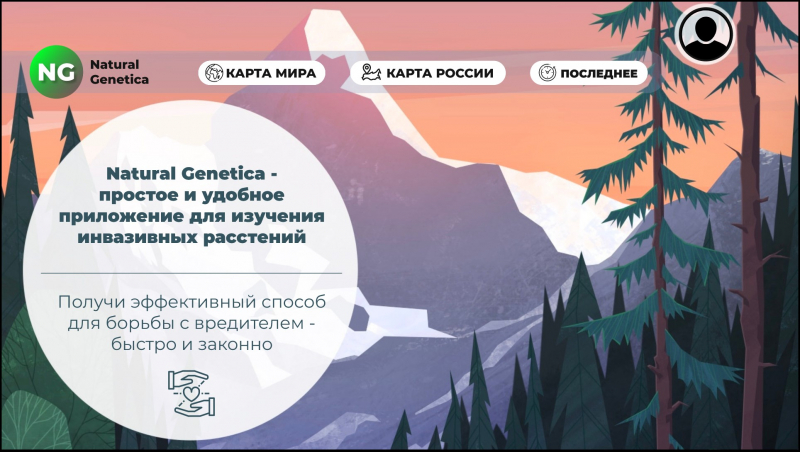
Home page of Natura Genetica, the app developed by Regina Tuganova's team. The app invites its users to discover a simple, efficient, and lawful way to combat invasive plant species. Picture courtesy of Regina Tuganova
Which ways of combating Boxelder maple did your team suggest?
Regina: One of the ways is herbicides, though it has certain limitations. For instance, such substances can’t be applied in natural reserves or near surface waters. We analyzed such constraints and studied the regulations, so that now our map shows the places where herbicides can’t be used.
Another way is to dig out the roots of Boxelder maples and plant pines, aspens, and fir trees instead. We calculated the necessary expenses, funding, and state funding.
We also came up with a bonus campaign to go along with the already existing bonus system at Tatneft gas stations. People could take pictures of the aggressive plant species they spotted and then get a reward in bonus points after they’d sent these pictures to the company.
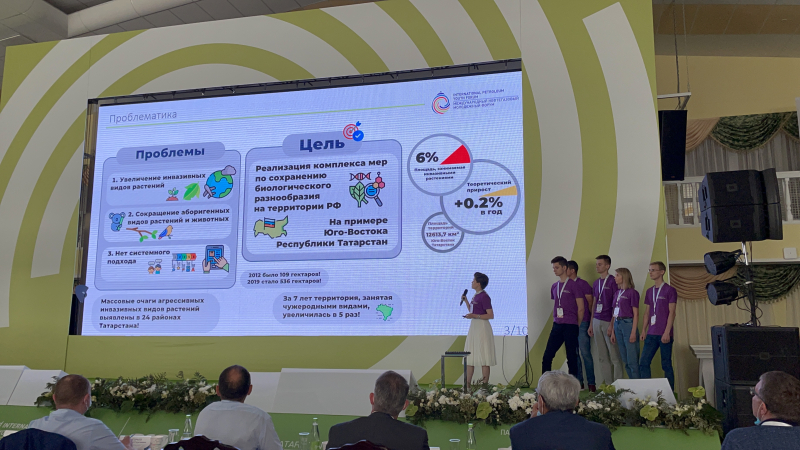
Regina Tuganova's team at the finals of the Hackathon Oil Tech Challenge 2021. Picture courtesy of Regina Tuganova
Daria, what was your project about?
Daria: My case focused on the transformation of energy systems through integration of various sources of energy, including renewable ones (solar and wind energy; implementation of minor hydro-electric power stations). This wasn’t an easy project because we are only starting to use alternative energy sources.
We needed to determine key ways for the long-term development of the energy industry until 2050. We had to evaluate regulatory, technological, and economic indicators for the optimal development of the power industry and create a joint program for the interaction between Tatneft and the government, as well as to come up with ways to attract subsidies.
Our team suggested that Tatneft become a guarantee for farms that could be built near new deposits near Spasskoye village. The company could provide farmers with electricity in exchange for the supply of farm animal waste that could be used as a source of biogas and green hydrogen. Such a collaboration is a win-win situation for both sides, as it allows them to reduce the amount of resources spent on logistics.
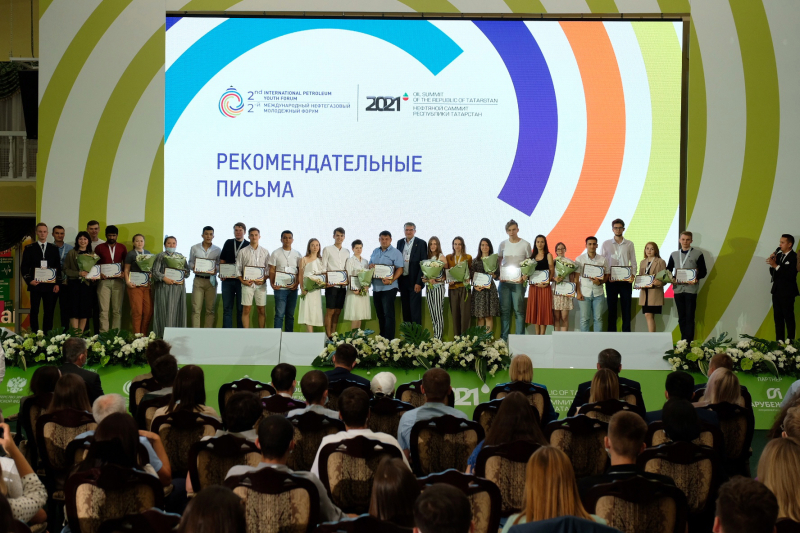
The finals of the Hackathon Oil Tech Challenge 2021. Photo courtesy of Daria Yakovleva
There were two engineers, one ecologist, and one financial expert on my team. I, as the project manager, evaluated investments in infrastructure, looked for ways to receive government support, and identified potential distribution channels. I also worked on the presentation of our idea for the expert commission. The project made it to the finals and was highly evaluated.
How would you describe your experience? Was this hackathon useful for you? What skills have you acquired?
Daria: I’m a Master’s student in the Innovative Entrepreneurship program and it was great to try my hand at the development of a solution for a company. Teamwork, communicating with experts, useful connections, new knowledge and ideas, constant brainstorming, and coming up with new solutions – that’s what it’s worth visiting the forum for.
Moreover, participants who were especially good at solving their business tasks had an opportunity to receive a letter of recommendation from the Ministry of Energy of the Russian Federation. We’ve achieved this and I think it’s a great bonus that might come in handy when looking for a job.
Regina: Not everyone has received a letter of recommendation – out of 240 participants, only 20 were granted this bonus. After the hackathon, Daria and I were invited to cooperate with Tatneft’s Center for Technological Development as part of their project implementation team. We agreed and have already been interviewed for the position. This is a great reward for our efforts.
I’ve also enjoyed communicating with the specialists. It wasn’t only about theory but practice as well. Each case was supervised by experts and it was great to talk to them. I’d say that the hackathon provided us with connections, teamwork experience, and an opportunity to apply theoretical knowledge that we’ve obtained at the university. For me, this trip was sort of like a final defense of my expertise and skills acquired at ITMO.
